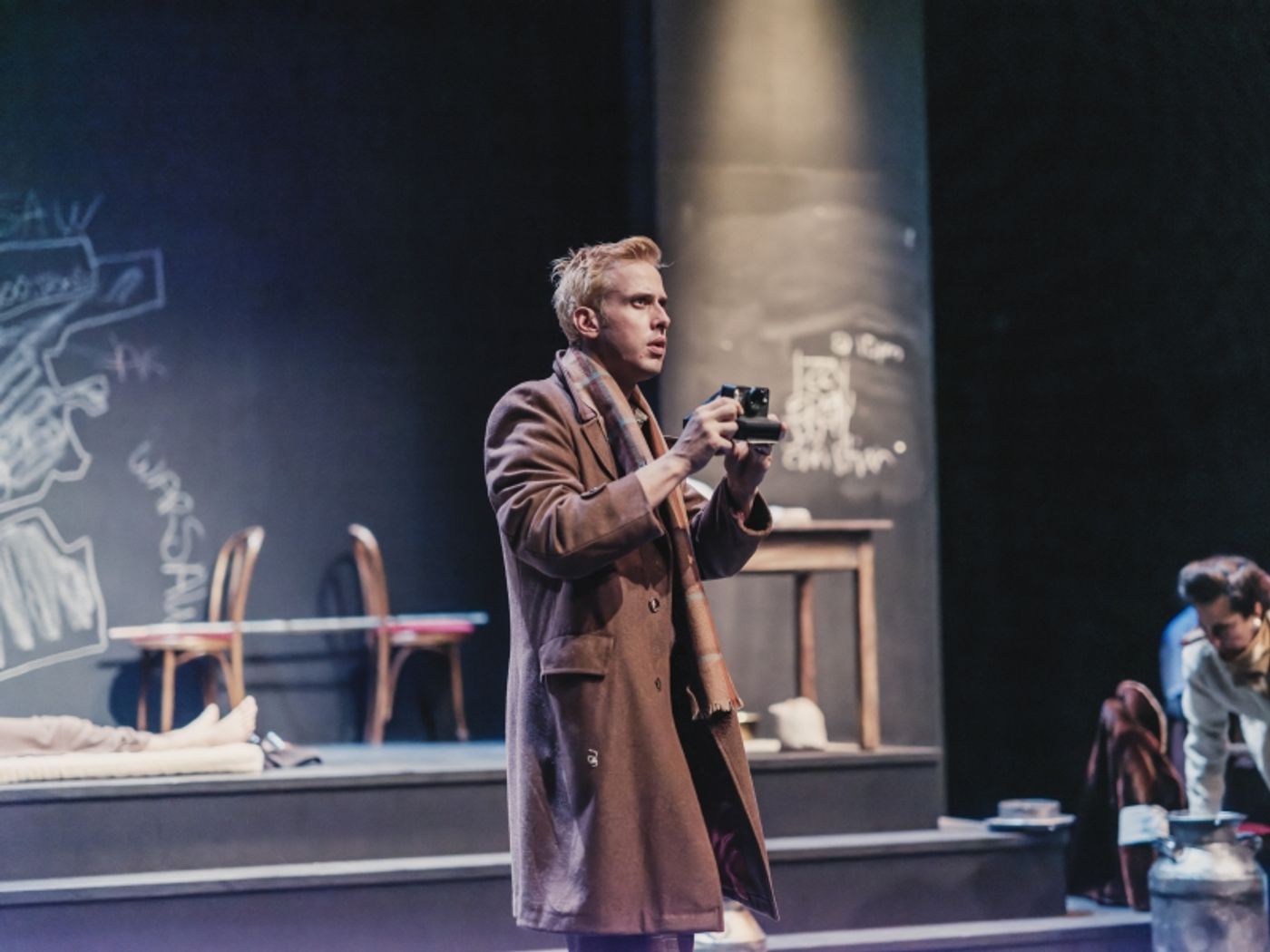Review: FOREVER YOUNG: A GHETTO STORY at Great Canadian Theatre Company
The production is now in performances at GCTC through November 20th.

The world premiere of Darrah Teitel's new play, Forever Young: A Ghetto Story, opened to an almost full house at Great Canadian Theatre Company. Teitel's previous works have been called controversial for the way they tackle difficult subjects with humour and this play is no different.
Forever Young tells the story of three young Polish Jews, Izzy (Ori Black), Eden (Brittany Kay), and Joshua (Billie Nell), who have taken refuge inside a cabaret in Warsaw. The play's timeline is the lead up to the Warsaw Ghetto Uprising of 1943. Izzy, Eden, and Joshy are hiding out from the Schutzstaffel (SS), who are rounding up thousands of starving Jews daily with the promise of bread and then shipping them to the death camps at Treblinka. The trio know that they inevitably face one of three eventualities: their hideout will be discovered, they will be shot in the street, or they will die of starvation or disease. While awaiting their fate, they document their plight by taking minutes and photographs that they then place into metal milk canisters, with the help of Eden's lover, a goy man (a Yiddish pejorative term for a gentile), aptly named Christian (Drew Moore). Eden is also Izzy's on and off again lover and Izzy also professes his love for Joshua, but no one seems to really mind this sharing of affections. Their circumstances bind them to each other, despite myriad differences in their individual backgrounds and beliefs.

Forever Young: A Ghetto Story, by Darrah Teitel
directed by Sarah Kitz. Photo by Curtis Perry.
After Felicia (Aviva Armour-Ostroff), the wife of a prominent member of the Jewish council, the Judenrat, comes to their aid, Izzy, Eden, and Joshua decide, with Christian's help, that they can mount a rebellion, not necessarily to emerge victorious, but to at least show a sign of resistance and let the SS know that they won't go down without a fight. Calling themselves the ZOB (Jewish Combat Organization), their plan is to gather as many ghetto comrades as they can and kill a Nazi soldier to send a warning that they are a force to be reckoned with. By setting the play in the lead up to the uprising, rather than during the uprising itself, Teitel's focus stays on the humanity of the characters - their interactions, hopes, dreams, fears and, more than anything, their steadfast loyalty to each other, despite much teenage bickering and teasing.
The cast was a little uneven on opening night, but Brittany Kay and Billie Nell both gave passionate, heartfelt, performances. The set (Brian Smith) was extremely stripped down, but the innovative use of chalkboard walls contributed immensely to the storytelling - it allowed the cast to literally write out the ZOB's minutes and draw the ghetto map. The lighting design (Seth Gerry) was also outstanding, creating a dramatic, moody setting, particularly in conjunction with the sound (Olivier Fairfield) when the cast "switched off" the play to speak directly to the audience to clarify or give more historical context to certain situations.

Forever Young: A Ghetto Story, by Darrah Teitel,
directed by Sarah Kitz. Photo by Curtis Perry.
While the play is being billed as a comedy, it is a heavy piece that has some comic relief embedded into it, but I think that labelling it a comedy may be, perhaps, a bit of a misnomer. It is a difficult subject matter and, at two hours long, the play does take a while to gain traction. I noted that quite a few patrons did not return to their seats after intermission. Ending on an epilogue of sorts, the audience was informed that, while a work of fiction, Teitel's play was inspired by an account of the ghetto uprising from the last surviving member of the ZOB, Marek Edelman, called Getto Walczy. It has, in turn, inspired me to seek out more information about the Warsaw Ghetto Uprising.
Even though Bob Dylan's (and later, Rod Stewart's) Forever Young, was intended to be a child's lullaby, the refrain in this context - used both at the beginning and the end of the play - was a heartbreaking reminder of the fate of many of the inhabitants of the Warsaw ghetto before, during, and after the events of this story.
Forever Young: A Ghetto Story is in performances at Great Canadian Theatre Company through November 20th.
Reader Reviews
Videos

